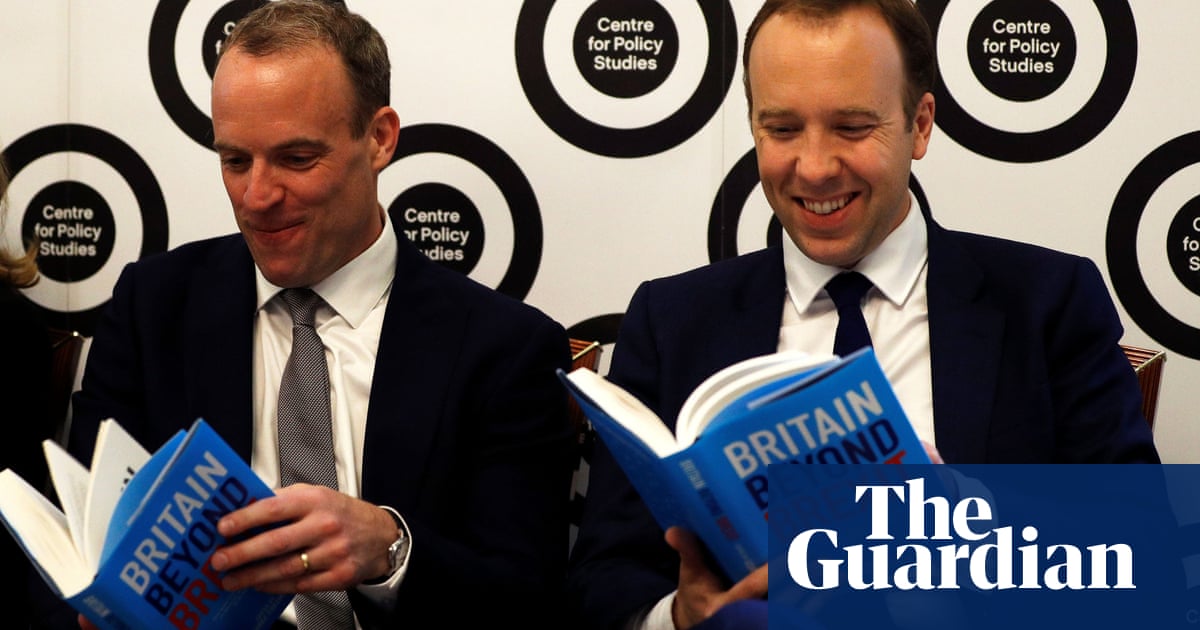
When the Sue Gray report was first published, Boris Johnson’s supporters took comfort from the fact that it provoked little immediate backlash within the Tory party. While it made for grim reading, the sense was that there was no smoking gun or new revelation that would send Conservative MPs into overdrive. The main response was silence, rather than fresh calls for Johnson to go.
But in the days that have followed, a general malaise has set in. A steady trickle of no-confidence letters has been submitted, with nine more MPs coming out against Johnson. This puts the total of MPs who have questioned his position as party leader at 34. Given that 54 letters are required to trigger a confidence vote, it is now viewed as more likely than not that one will take place.
One senior government aide believes the party will soon stumble into a vote, perhaps as early as a week today, when MPs return from their half-term break. “There’s been no coordination that I know of,” says one MP, who has already submitted a no-confidence letter, pointing to the unpredictability of the process.
Should Johnson face a ballot, the sense among his supporters is that he would win it. But these votes tend to expose weakness rather than strength, and the problem for the prime minister is that this isn’t just about one issue. There are a range of problems making him vulnerable to a challenge and, as Tory MPs question the point of their government as it raises taxes and spends more, the reasons for enthusiastically backing Johnson also start to dissipate.
The first issue is, of course, Partygate. The Sue Gray report was always cited by many Tory MPs as the moment they would make up their mind on the whole affair. It follows that MPs on the “one nation” wing of the party and those who value due process are now donning their black caps. Look at Bob Neill’s comment that “trust is the most important commodity in politics”. He argues that Partygate has undermined trust in both the prime minister and the political process itself.
The latest malcontent is Jeremy Wright, who served as attorney general under David Cameron and Theresa May. He cited “the lasting damage to the reputation not just of this government, but to the institutions and authority of government more generally” as one of his main reasons for calling for Johnson to go. While Wright has never been viewed as a Johnson person – he was sacked by Johnson in a cabinet cull in the summer of 2019 – it points to the growing discomfort within the party.
The decision to water down the ministerial code has only further pushed away MPs who value propriety. Speaking on Times Radio, Labour’s Anneliese Dodds told me that Tory MPs had come to her to find out more about Labour’s plan for an opposition-day motion to challenge the changes.
It’s also not over yet. New revelations over the weekend that there was a second gathering in the No 10 flat during lockdown, held by Carrie Johnson on her husband’s birthday, are catnip to angry MPs. The original No 10 flat drinks – on the night Dominic Cummings left – were always the most contentious among MPs. It’s not just that it is viewed as harder to explain than a drink in an office. It also plays into their fear that there was a shadow operation through which decisions on government were made in private with favoured advisers and friends of the prime minister’s partner.
There are, though, still plenty of MPs who have decided that parties alone are not reason enough to remove a prime minister. This is where electoral calculations come in, and, with an MRP model at the weekend predicting the Tories would lose all but three battleground seats were an election to be held now, there is little reassurance for those on the fence.
It’s why the resignation of Paul Holmes, part of the 2019 intake of Conservative MPs, as a Home Office parliamentary private secretary is viewed by one Tory old hand as the most worrying development so far. “He had bad local election results, so the electoral reality must have hit him. This is something that is going to hit a lot more people with the byelections [this month] and locals next year.”
Losses in the two crunch byelections being held on 23 June would expose the electoral danger the party currently faces. Tiverton and Honiton is usually a safe Tory seat, and the Lib Dems have become the main challengers here. The other, Wakefield, is “red wall” territory, and Labour are vying to win it. If the Tories lose both seats, there will be acute nervousness across the parliamentary party.
Conservative MPs are also suffering a broader identity crisis. Johnson’s strategy has been to shore up support with the right flank of his party as the key to keeping his job. There has been a raft of red meat policies – from proposals to send asylum seekers to Rwanda to the plan to privatise Channel 4 – with more to come: just look at the promise of a bonfire of EU regulations and the talk of more grammar schools. But the spending announcement last week – a £15bn package of support part-funded by a windfall tax – has had the opposite effect. Senior Tories such as Iain Duncan Smith have criticised the policy. He has argued that the party has an “enormous identity problem” because it is raising taxes when it should be cutting them. With the economy looking bleak for the foreseeable future, moving on to better terrain looks like an uphill struggle for Johnson’s government.
All this makes a leadership ballot – in which all votes are anonymous – a risky business for a prime minister who has repeatedly tested the patience of his party. “Unless they [his campaign team] are completely incompetent – which is always a risk – he should win it,” says a former minister. “The biggest danger is that the number against him ends up being higher than expectations.”
At that point Johnson would still be safe for a year, but his authority would be weakened further. Suggestions from Johnson’s allies to MPs that if he was challenged 12 months later he could call an election instead have also inflamed rather than soothed relations. “It just makes colleagues think waiting to move against him is risky,” says a Tory MP.
The prime minister managed to cling on earlier this year when many were writing him off, but to lead the Conservatives into the next election will be his biggest challenge yet. Even if Johnson weathers the coming storm, his party is disunited and fast running out of goodwill.
Katy Balls is deputy political editor of the Spectator












